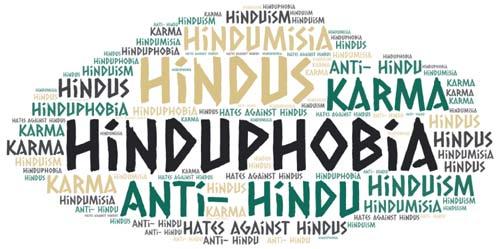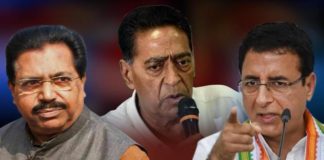A few recent developments give us cause for both hope and concern over growing Hinduphobia in the US and United Kingdom. We should call this Hindumisia, or Hindu hatred, for the phobia means “an exaggerated, usually inexplicable and illogical, fear of a particular object, class of objects, or situation.”
By R Jagannathan
The key word is “fear”. When did Hindus anywhere engender fear in their host nations, when it is radical Muslims who have been the objects of logical or illogical fears in the West? So, no, it is time to reject the word Hinduphobia, for Hindus are not feared, but hated or despised. The reasons are not something we need to get into here.
Three events, including a detailed report by the Henry Jackson Society in Britain, give us cause for hope that Hindumisia is now being recognised for what it is.
On Wednesday, 19 April, Mayor Lily Mei of the US city of Fremont made a proclamation against Hinduphobia which defines the phenomenon as a “set of antagonistic, destructive and derogatory attitudes towards Sanatana Dharma (Hinduism) and Hindus that may manifest itself as prejudice, fear or hatred…”.
The proclamation was welcomed by the Hindu American Foundation (HAF), which has, against the odds, been battling Hinduphobia and Hindumisia in the US.
The existence of Hindumisia was demonstrated almost immediately after the proclamation, with Kshama Sawant, who shepherded the Seattle City Council law on caste-based discrimination, blasting the Mayor.
In a tweet, she said: “Shame on Democrats @LilyMei4Fremont @RajSalwan & Fremont City Council for a proclamation on the right-wing Hindu American Foundation.” One wonders what is shameful about a proclamation against Hinduphobia.
Hindus for Human Rights, which has almost never fought for Hindu human rights anywhere and is frequently in alliance with Islamists and anti-India groups, tweeted its concerns even before the proclamation was voted on.
“The City of Fremont, CA is voting on a proclamation tonight condemning ‘Hinduphobia.’ While we applaud the council’s concern for the well-being of its constituents, we find the proclamation deeply troubling for several reasons ….”.
That anybody should oppose a statement merely opposing Hinduphobia “troubling” says a lot. It suggests that anti-Hindu forces in the US have conscripted Hindus to divide the community and indirectly promote Hindumisia.
Another cause for hope came earlier this month, when the Georgia State Legislature passed a county resolution condemning Hinduphobia and anti-Hindu hate, something that has been well-documented. The Federal Bureau of Investigation has said that there has been a rise in anti-Hindu hate crimes of late.
But a member of Hindus for Human Rights, responding to the Fremont proclamation, deflected the issue and advised “Indian Americans” to “tamp down on cries of ‘Hinduphobia’ and speak more forcefully against the surge in Islamophobia and anti-Christian violence in India.”
Note the term “Indian Americans” and not Hindu Americans. There is apparently a need to even deny that there are “Hindu Americans” who face hatred, but they must instead focus on Islamophobia in India! Hypocrisy cannot be better illustrated.
If this is a second instance of hope being laced with concern about an anti-Hindu lobby that simply refuses to see what is in front of it, the largest signal of hope comes from a report in the UK by the Henry Jackson Society, which undertook a survey of Hindu parents in the kingdom and discovered shocking levels of Hindumisia in schools.
The report said “…51 percent of Hindu parents surveyed reported that their child had experienced anti-Hindu hate in schools, while less than 1 percent of schools surveyed reported any anti-Hindu related incidents in the last five years. Only 19 percent of Hindu parents surveyed believe schools are able to identify anti-Hindu hate. Eight physical assaults were detailed. One female Hindu pupil had beef thrown on her, a male student was reported to have (had) to change East London schools three times on account of anti-Hindu bullying and concerns have risen around a problematic approach to teaching Hinduism that is directly leading to bullying in the classroom.”
The report, authored by Charlotte Littlewood, surveyed 998 Hindu parents, and they clearly said what little of Hinduism is taught to children, “is pretty much a mockery of the religion”.
This should worry us all, for if the study of Hinduism is largely a mockery of it, why is it that this continues unabated 75 years after the end of colonial rule? Clearly, the missionary view that Hinduism is just a bunch of irrational and negative ideas still prevails. This is Hindumisia not Hinduphobia.
The Modi government must wake up to the uphill task of changing the negative narratives about Hinduism. But it is Hindu society at large that must take up this task on a war footing without letting the government off the hook for its lapses in defending Hindu interests in India and elsewhere.
This article first appeared in www.swarajyamag.com and it belongs to them.








